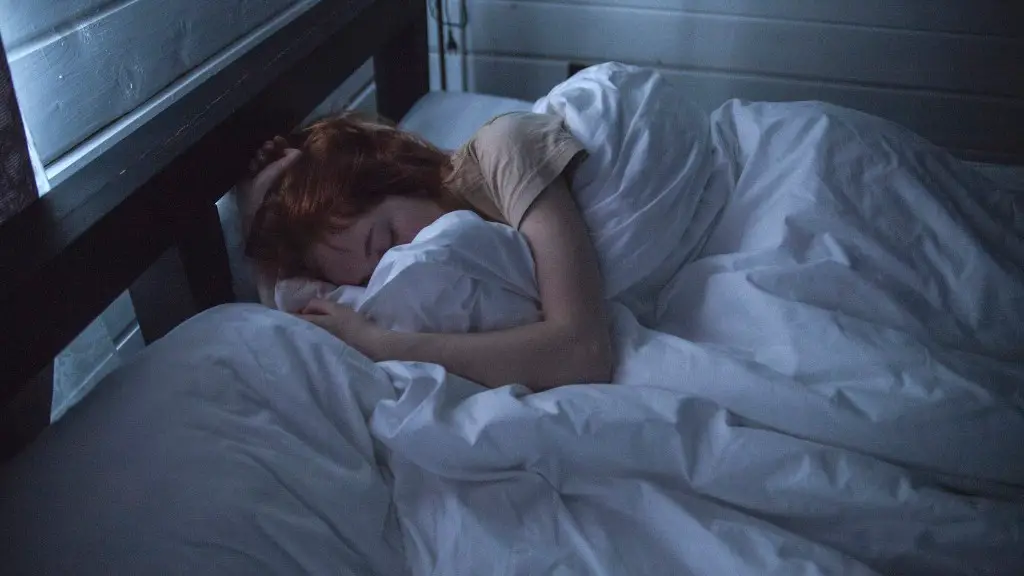Some medications can cause vivid dreams and nightmares. These include certain antidepressants, antipsychotics, and antihistamines. The mechanism is not well understood, but it is thought that these medications affect the brain chemicals that regulate sleep.
There is no definitive answer to this question as different medications can have different effects on different people. Some common medications that have been reported to cause vivid dreams and nightmares include antidepressants, beta blockers, and antihistamines. If you are concerned that your medication is causing you to have vivid dreams or nightmares, talk to your doctor.
Which medicine may cause nightmares as a side effect?
Antidepressants may intensify dreams and increase the frequency of nightmares. These effects may be due to the drugs’ effects on serotonin levels in the brain. If you are taking antidepressants and have experienced these effects, talk to your doctor to see if another medication may be a better option for you.
Nightmares can be very upsetting and can cause a lot of stress and anxiety. There are a few things that can trigger nightmares, including: stress or anxiety, a major change, or the death of a loved one. If you are having nightmares, it is important to try to relax and take some time for yourself to calm down.
Do blood pressure meds cause nightmares
While drug-induced nightmares are a known adverse effect of certain antihypertensive agents, they are not a common occurrence. If you experience nightmares while taking an antihypertensive medication, speak to your doctor.
Although more common with the lipophilic beta blockers such a propranolol and metoprolol, nightmares can also be seen with hydrophilic beta-blockers such as atenolol. Reserpine has also been noted to cause nightmares. Dopamine agonists – Dopamine agonists can cause or worsen nightmares.
How do I stop vivid dreams?
If you’re having trouble sleeping because of dreams, there are a few things you can do to ease your mind and get some rest. First, try not to dwell on the dream too much. Dreams are a normal part of emotional processing, so they’re nothing to be worried about. Second, feed your brain positive images before you go to sleep. This can help ease any anxious thoughts and allow you to relax. Finally, practice self-care. This means taking care of yourself both physically and mentally. Make sure you’re getting enough rest and exercise, and talk to someone about your stress and anxiety.
It’s interesting to note that studies suggest that nightmares are often linked to unmet psychological needs and/or frustration with life experiences. This suggests that our dreams and nightmares are actually a way for our subconscious to communicate with us, and that they may be trying to tell us something about our lives that we’re not aware of. It’s also possible that these links aren’t always easy to make, and that our nightmares may reflect our troubles through metaphor rather than literal representation.
Is it normal to have vivid nightmares every night?
Nightmares are a type of sleep disorder known as a parasomnia. Parasomnias include numerous types of abnormal behaviors during sleep. Nightmare disorder is when a person has frequent nightmares that interfere with their sleep, mood, and/or daytime functioning.
Since I started taking a statin (simvastatin), I’ve been plagued by vivid dreams. Is this common?
Yes, cholesterol-lowering simvastatin can affect your dreams – not always in a nice way.
Are nightmares a side effect of statins
We have seen a few complaints in our surgery from patients taking cholesterol-lowering statins who say they are having difficulty sleeping and/or experiencing vivid dreams. Clinical trials suggest that nightmares are not a common side effect of these medications, but it is something that we are keeping an eye on. If you are taking a statin and are having difficulty sleeping, please let us know so we can help you troubleshoot the issue.
If you experience any of the above symptoms, it is important to seek medical attention immediately as they could be indicative of a serious heart condition.
What prescription drugs cause night terrors?
There are a variety of prescription drugs that can cause sleep disturbances, particularly among adults. These include antihistamines, decongestants, levodopa, reserpine, beta blockers, and antidepressants. In addition, withdrawal from addictive drugs can also cause sleep problems.
The amygdala is a structure deep in the brain that is involved in fear behaviors. It is possible that in post-traumatic nightmares, the amygdala is overactive or overly sensitive. This may explain why people who have experienced trauma often have nightmares about the event.
Can too much medication cause nightmares
It’s important to speak to your doctor if you are having nightmares as a side effect of your medication. They may be able to prescribe a different medication that doesn’t have this side effect. In some cases, lowering the dose of your current medication may also help.
If you dream that you’re being chased, it’s likely that you’re running away from something in real life. This could be a problem or situation that you’re trying to avoid. Alternatively, it could be an emotionally charged situation that you’re not ready to face. The thing that’s chasing you in your dream represents what you’re running from. If you can identify what that is, it may help you to address the issue in real life.
What is it called when you have constant nightmares?
Nightmare disorder is a sleep disorder characterized by frequent nightmares. The nightmares, which often portray the individual in a situation that jeopardizes their life or personal safety, usually occur during the REM stages of sleep.
While nightmares can be associated with certain mental health conditions, they are not considered a psychiatric illness. Nightmares are a type of parasomnias, which are behavioral sleep abnormalities.
Warp Up
There is no one definitive answer to this question as medications that cause vivid dreams and nightmares can vary depending on the individual. Some common drugs that have been linked to vivid dreaming include antidepressants, beta blockers, and lithium. If you are experiencing vivid dreams or nightmares while taking medication, it is important to speak to your doctor to see if the drug is the cause and to discuss possible treatment options.
There are a variety of medications that can cause vivid dreams or nightmares. These include antihistamines, antidepressants, and antipsychotics. While many people find these dreams to be unpleasant, some people find them intriguing.





